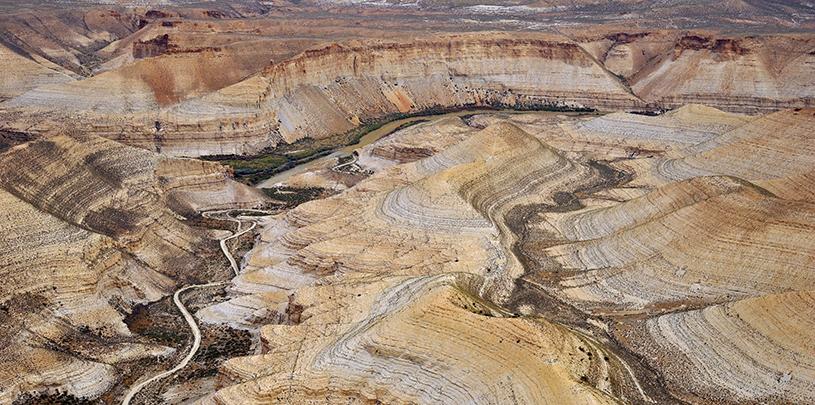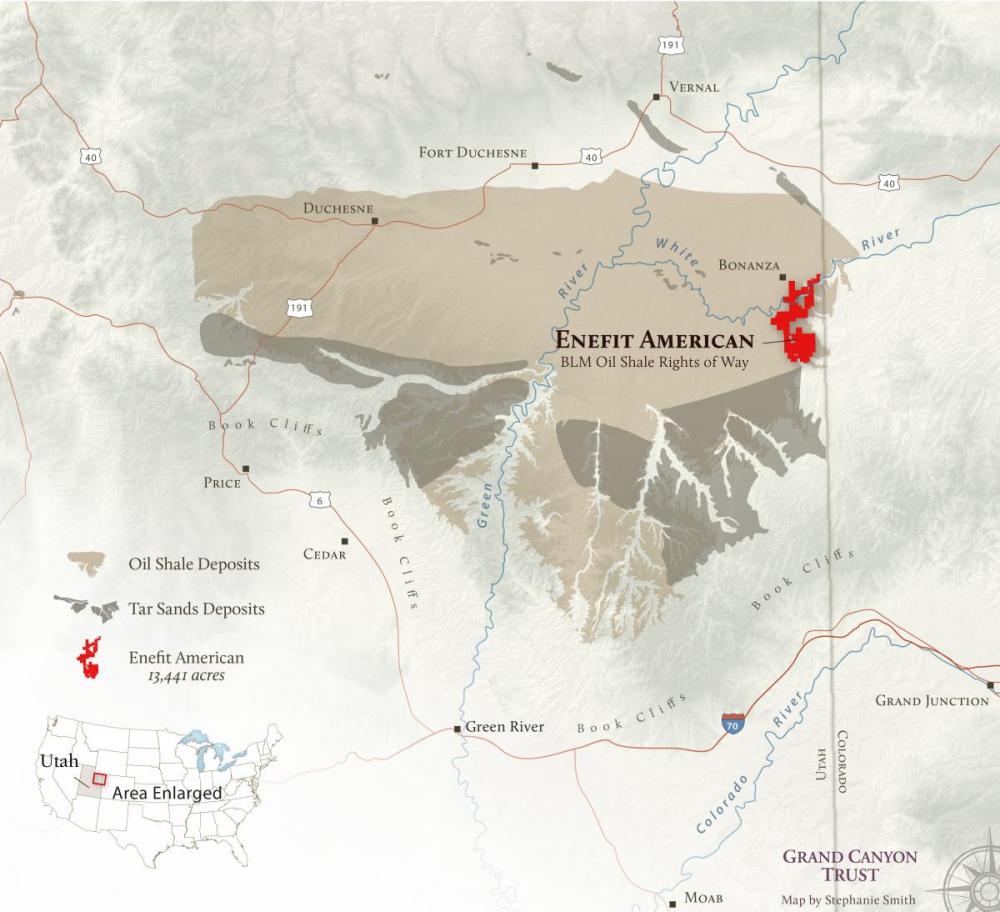
 by Amber Reimondo, Energy Director
by Amber Reimondo, Energy Director
Last week, the Bureau of Land Management (BLM) approved a utility corridor that will allow Enefit American Oil — the Utah branch of Estonian-owned oil shale giant Eesti Energia — to route pipelines across your public lands in northeast Utah. This decision effectively grants the company the public subsidy it needs to build a half-square mile industrial complex in the desert — the first commercial-scale oil shale retorting and processing operation in the United States. It’s a running joke that oil shale is the fuel of the future — always has been, always will be — but now the federal government, under the mantle of “energy dominance,” may be paving the way for oil shale to become a fuel of the here and now.
What’s concerning here is that the BLM made this decision without taking a hard look at the potentially catastrophic effects a 50,000 barrels-per-day oil shale facility could have on Utah’s air and water, endangered species, and on communities downstream. We’re talking about the stark and arid beauty of northern Utah, just over the Colorado border, not far from the confluence of the White and Green rivers.

The area is home to a number of already endangered species as well as candidates for the endangered species list, including fish like the bonytail chub, Colorado pikeminnow, greenback cutthroat trout, humpback chub, and razorback sucker. Water is a precious resource in the desert and Enefit’s facility would suck over 9.6 million gallons of it out of the Upper Colorado River Basin every day. And if metals, salts, and hydrocarbon contaminants pollute surface water and leach into groundwater as they have at Enefit’s oil shale facilities back home in Estonia — where the waste piles are referred to as the "Estonian Alps" and are visible from space — the consequences could be devastating.
To get oil shale, you first have to strip-mine millions of tons of kerogen-rich rock, heat it through a chemical process to separate it out, and then process it. This requires a lot of water and energy, and spews a lot of pollution into the air.
How much is “a lot”? Well, Enefit’s oil shale project would suck over 100 billion gallons of water from the Colorado River Basin over the next three decades, at a time when climate change and growing populations are likely to make water an even more coveted resource in the arid West. The company’s extraction and refining process would result in nearly 40 percent more carbon dioxide emissions per unit of energy than conventional oil. And it would double oil production in Utah's Uinta Basin, which, along with the Salt Lake City region, already has some of the worst air quality in the nation.

Enefit claimed it would move ahead with plans to build the facility with or without the rights-of-way to run pipelines across public land. Enefit owns the land where it plans to strip-mine up to 28 million tons of rock per year. The BLM took the company at its word, and failed to independently analyze the economics of the project, which appear wildly unfeasible without the utility corridor. For example, Enefit claimed that, without a water-supply pipeline, the company could instead truck the 6,732 gallons-per-minute of water it needs to operate its oil shale plant. Of course, to do this, Enefit would need to run one 9,000-gallon tanker truck from the Green River every 80 seconds, 24 hours a day, for 30 years. Even if this were logistically possible, the cost of trucking all this water would almost certainly be an insurmountable financial obstacle.
The Grand Canyon Trust and partners have raised these and other concerns in formal comments to the BLM.
Considering the rights-of-way the BLM has handed to Enefit are a public subsidy of an otherwise economically dubious oil-shale facility, we believe the public has a right to know exactly how Enefit’s project will impact the environment and public health.
The BLM’s decision raises a number of red flags. The federal government, in its eagerness to advance the Trump administration’s goals of American energy dominance, has failed to satisfy its duty to the public: to take a hard look at the long-term environmental impacts of a project like this. Our public lands shouldn’t be used to make it easier for private companies to turn a profit at the expense of everyone’s clean air and water.
We are reviewing the BLM's decision and weighing potential next steps to ensure that this project gets the environmental review it deserves.
Join our Action Alert Network and we’ll email you when there’s an opportunity to weigh in ›
Estonian-owned oil shale giant is barred from siphoning 100 billion gallons of water from a Colorado River tributary.
Read MoreThere's something fishy about the water right for a massive oil shale facility in northern Utah.
Read MoreCould a wild corner of Utah become the site of the nation's first commercial-scale oil shale strip mine and processing plant?
Read More